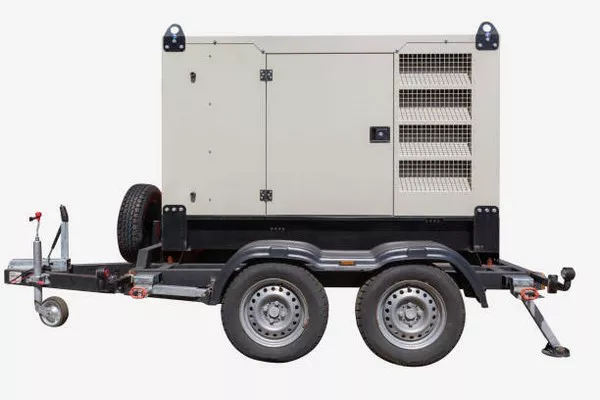Small generators serve as essential backup power sources during emergencies, outdoor events, and for various DIY and construction projects. Knowing how long a small generator can run is crucial for planning and ensuring a reliable power supply. The runtime of a small generator depends on several factors, including fuel type, generator size, load capacity, maintenance, and environmental conditions. In this article, we will explore these factors and provide valuable insights into maximizing the runtime of a small generator.
Fuel Type
The type of fuel a small generator uses plays a pivotal role in determining its runtime. Most small generators rely on either gasoline, propane, or diesel as their energy source. Each fuel type has its advantages and limitations.
Gasoline Generators:
Gasoline generators are the most common type for small applications. They are generally affordable and easy to find. The runtime of a gasoline generator is contingent on its fuel tank capacity and fuel efficiency. On average, a small gasoline generator can run for 8-12 hours on a full tank, depending on the load.
Propane Generators:
Propane generators are known for their clean-burning fuel and increased shelf life compared to gasoline. These generators often have similar runtime to gasoline generators, but the efficiency of propane can vary. Factors such as the generator’s design and load affect runtime. On average, a small propane generator can run for 8-12 hours on a standard propane tank.
Diesel Generators:
Diesel generators are renowned for their fuel efficiency and longer runtimes. Small diesel generators can run for 12-24 hours or even longer, depending on the tank size, load, and efficiency. However, they tend to be more expensive and are often noisier than gasoline or propane counterparts.
Generator Size and Capacity
The size and capacity of a small generator significantly impact its runtime. Generators are rated in watts, and the higher the wattage, the more appliances and devices they can power. When a generator operates below its maximum capacity, it consumes less fuel and runs longer.
It’s essential to choose a generator size that matches your specific power requirements. Overloading a generator can lead to decreased runtime and even damage the generator over time. Smaller generators with a capacity of 1,000 to 3,000 watts are suitable for powering essential appliances during outages, while larger generators with a capacity of 5,000 to 10,000 watts can support more extensive loads and longer runtimes.
Load Management
Efficient load management is key to extending the runtime of a small generator. The load refers to the total wattage of the appliances and devices connected to the generator. To maximize runtime, prioritize which appliances you need to power during an outage and avoid connecting devices that are not essential.
For example, during a power outage, you may need to run a refrigerator, some lights, and a sump pump. By calculating the wattage of these appliances and ensuring that they do not exceed the generator’s capacity, you can prolong the generator’s runtime. Additionally, using energy-efficient appliances and LED lighting can reduce the load on the generator, thus extending its runtime.
Regular Maintenance
Proper maintenance is crucial for ensuring the longevity and efficiency of a small generator. Neglecting maintenance can lead to decreased runtime and even generator failure. Here are some maintenance tips to consider:
Oil Changes: Regularly change the generator’s oil according to the manufacturer’s recommendations. Clean oil ensures the engine runs smoothly and efficiently.
Air Filters: Clean or replace air filters as needed. Clogged air filters can restrict airflow and reduce engine performance.
Spark Plugs: Inspect and replace spark plugs at recommended intervals to maintain efficient combustion.
Fuel Stabilization: If the generator is not used frequently, use fuel stabilizers to prevent fuel degradation, which can affect runtime and engine performance.
Fuel Filters: Clean or replace fuel filters to ensure a consistent fuel supply.
Regular Startups: Periodically start the generator and let it run for a short duration to keep the engine in good condition.
Environmental Conditions
Environmental factors can also impact the runtime of a small generator. Temperature, humidity, and altitude can affect engine performance. Here’s how these factors come into play:
Temperature: Cold weather can reduce the efficiency of a generator’s engine and increase fuel consumption. In contrast, extreme heat can also affect performance. Insulating the generator or providing a shelter can help mitigate temperature-related runtime issues.
Humidity: High humidity can lead to condensation, potentially affecting electrical components. It’s essential to store the generator in a dry place when not in use.
Altitude: Generators perform differently at high altitudes. At higher elevations, the engine may require adjustments to maintain optimal performance. Consult the manufacturer’s guidelines for operating the generator at different altitudes.
Proper Ventilation: Adequate ventilation is crucial to prevent the generator from overheating. Ensure there is enough space around the generator to allow proper airflow.
Conclusion
Understanding how long a small generator can run is essential for planning and ensuring a reliable source of backup power. Fuel type, generator size, load management, regular maintenance, and environmental conditions are all factors that influence a generator’s runtime. By making informed choices and implementing good practices, you can maximize the longevity and effectiveness of your small generator, ensuring it serves you well during power outages and various applications. Remember that investing time in maintenance and proper load management can significantly extend the runtime of your small generator and keep your essential appliances and devices running smoothly.

